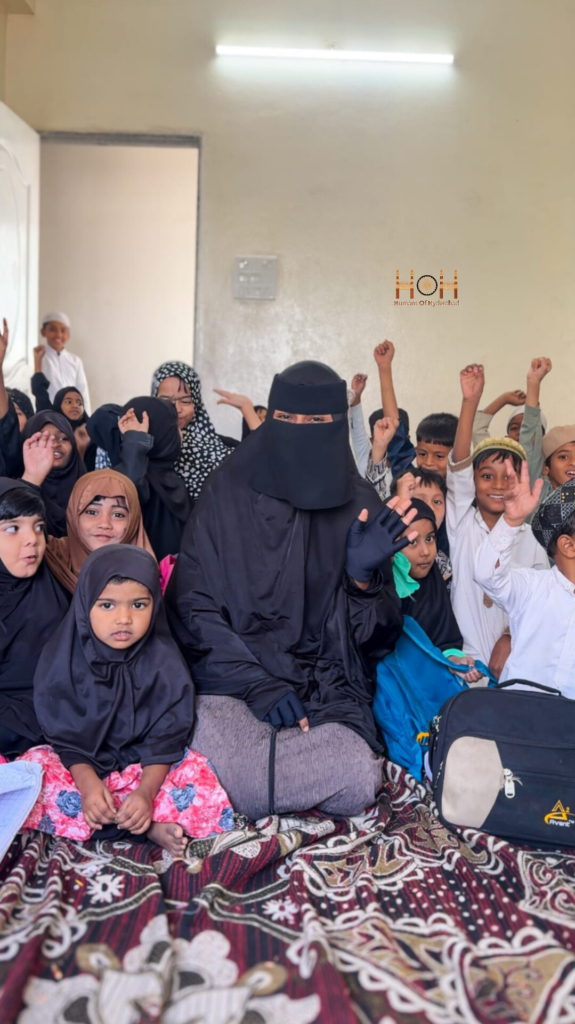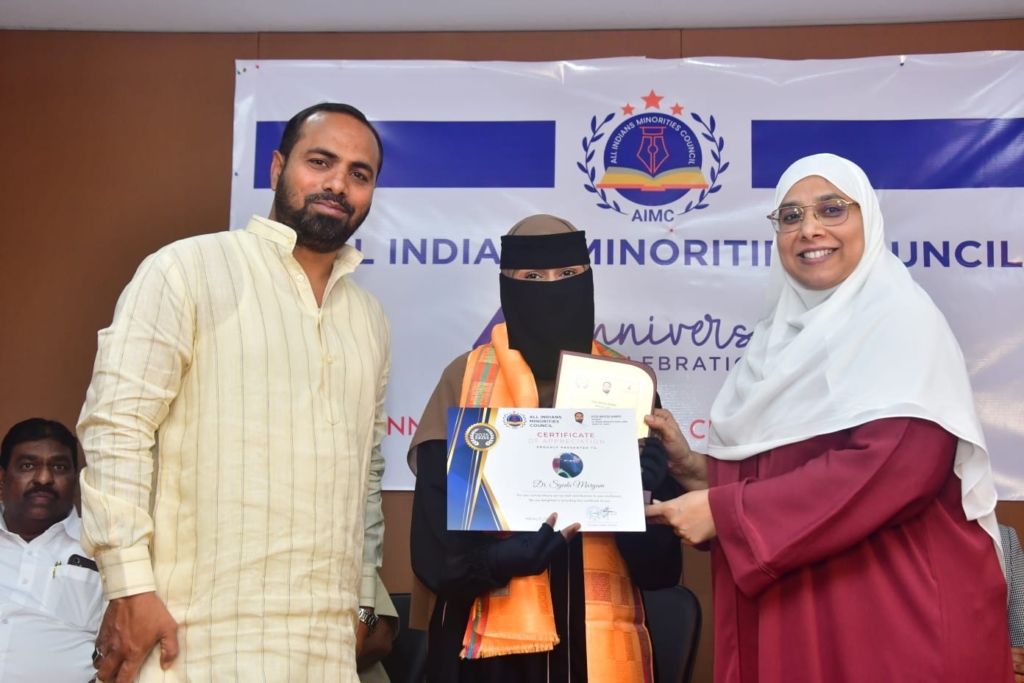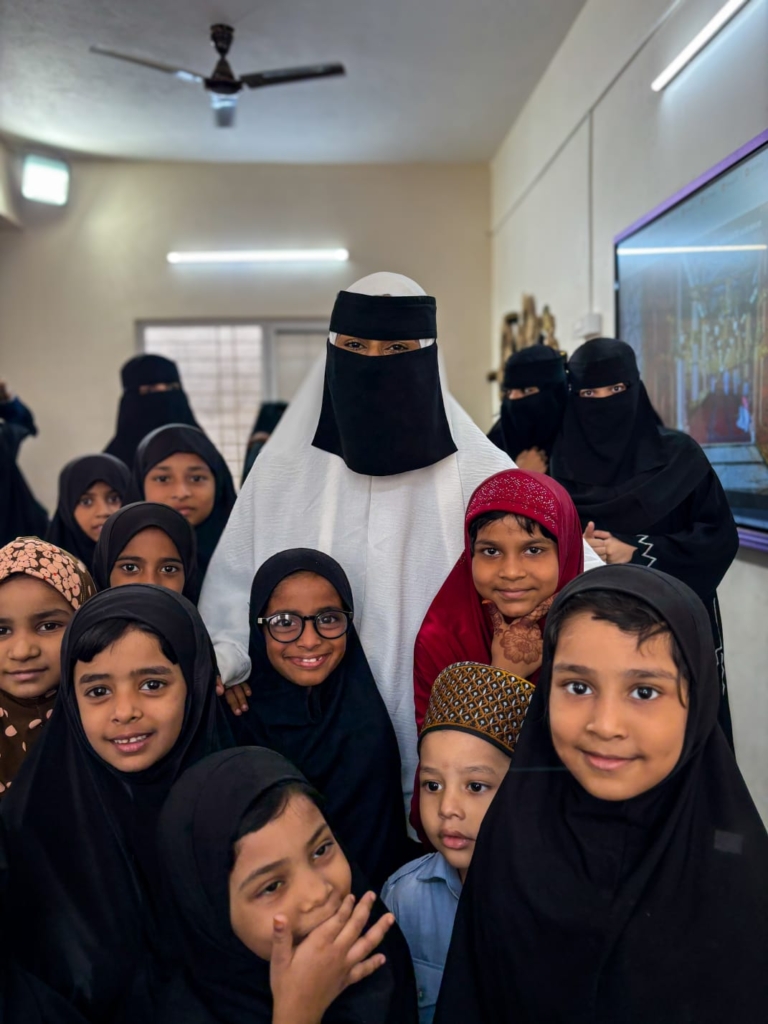“I’m Dr. Syeda Maryam, a 29-year-old dentist from Hyderabad. I co-founded the Ababeel Foundation with my husband (an emergency physician) and my younger brother (an anesthetist). Social work was not part of the plan, but life had other ideas.
During COVID, I began noticing more and more women around me suffering silently with swollen eyes, sadness they had no words for. I tried talking to them, but most were too afraid or had already given up. The moment that changed everything was when my house help came in, visibly injured. That day, I realized that just feeling bad was not enough. Something had to be done.
I knew I couldn’t change the minds of the older generation overnight. But maybe, if we support the next one, guide young girls, educate them, and build their confidence, they might grow up knowing when to say no. That became the starting point of the foundation.

We called it Ababeel, inspired by small birds mentioned in the Qur’an that brought down an army of elephants with stones in their beaks. To me, it means even the smallest efforts can make a powerful impact.
We began with just 12 students. Today, we have nearly 480 across two branches. In the beginning, it was just me, my husband, and my brother. No funding, no team, just long nights, big hopes, and a lot of learning on the go. My daughter was only a year old, and I was juggling motherhood, admin, fundraising, and fieldwork. My mother helps look after my daughter, and that support means everything to me.

Now, we support around 300 families. Every child who joins us comes from an underprivileged background. Most are orphans or from single-parent households. We conduct background checks before admission to understand what kind of support each family needs. When donations come in the form of groceries, clothes, or medicines, we distribute them based on urgency and need, not numbers.
One of the projects that has meant the most is our Free Cataract Surgery Program. Being part of restoring someone’s vision, especially someone elderly who thought they would never see clearly again, is a feeling I can’t describe.

Outside academics, we regularly organize community awareness sessions for parents, neighbours, and anyone who wants to join. We talk about practical things like health, hygiene, small business ideas, diet, and mental health. These sessions are about creating informed, confident communities.

Even though it’s only been a year, I have already seen transformation. Families who were once skeptical now believe. Their kids are more confident and receiving consistent support.
One of the hardest challenges has been convincing people that charity is not just about food packets or one-time donations. Real impact comes from long-term support like education, rent, and healthcare. It is harder to explain, but so much more powerful.
What this work has taught me most is gratitude. The kids we work with have so little, yet they show up full of joy. They’ve reminded me how strong and beautiful resilience can be.

In the early days, I used to message every donor with updates. Now, with so many reaching out, it’s harder to respond individually, but we share everything online. The work is visible. If it speaks to you, you’ll know it is real.
The women we work with face heartbreaking challenges. Many are stuck in abusive environments. They are not just struggling financially but are emotionally and mentally exhausted. Empowering them starts with helping them understand they have rights, they have worth, and they are allowed to speak up.

Education, to me, is not about rote learning. It’s about preparing kids for real life. We teach them how to speak confidently, start small businesses, and build practical skills. Even our 13-year-olds are learning things that matter beyond exams.
True women empowerment takes time and resources, but even helping a woman recognize her own voice is a kind of liberation. That is what we have been trying to do since day one.

Looking ahead, I hope that in the next 10 to 15 years, the families we work with will be completely out of poverty. I want their children to be educated, their homes to be stable, and their lives free from abuse and fear. I want them to live with dignity, not just survive.
And to young people who want to help, you don’t have to start a foundation to make a difference. Start small. Be kind. Ask your maid if her child needs school support. Check in on your driver. Sometimes, the right conversation at the right time is just as impactful as any donation.
If you believe in this work, or even if this story stayed with you, just know that your smallest act of kindness might be someone else’s turning point.”
